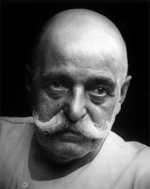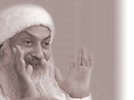|
 If we discover that we have a disease with an unfavorable course, like MS or cancer, our entire existence threatened. All our certainties are cut off, there is no support found in all achievements that we have built up in this life. We are ultimately alone. But we have not learned how to direct as a need to stress.Preparation of the problems calls. Yes, you can, to some extent, especially if professional help is given to the processing. But how well you can handle bad news, every time, the negative thoughts and feelings. If we discover that we have a disease with an unfavorable course, like MS or cancer, our entire existence threatened. All our certainties are cut off, there is no support found in all achievements that we have built up in this life. We are ultimately alone. But we have not learned how to direct as a need to stress.Preparation of the problems calls. Yes, you can, to some extent, especially if professional help is given to the processing. But how well you can handle bad news, every time, the negative thoughts and feelings.
For example, if you hear that you have cancer, the looming finiteness of your life for you. There will be a period of anxiety, displacement, busy with other things that distract you, anger, sadness. Those emotions will become your identification. Juming over yourself seems not possible. But after these emotions have been given a place, what then? Feelings of uselessness insist on, depression. These colors your day, or do you prefer grey day. Where to go?
Meditation teaches Release
 Through meditation is a way out of this prison of negative emotions.Through meditation, you can learn to let loose, onthechten. And enjoy every moment that life offers. If you are faced with your own mortality can see the endless game of ego Release. You do not need more impression on others, you can show who you are. Everything is in fact now in a new light. If you jump to aandurft inseparable partners, total relaxation in what there is, the detachment a chance. And you can suddenly new area experienced in yourself. Through meditation is a way out of this prison of negative emotions.Through meditation, you can learn to let loose, onthechten. And enjoy every moment that life offers. If you are faced with your own mortality can see the endless game of ego Release. You do not need more impression on others, you can show who you are. Everything is in fact now in a new light. If you jump to aandurft inseparable partners, total relaxation in what there is, the detachment a chance. And you can suddenly new area experienced in yourself.
Watcher on the Hill
This detachment was illuminated by the master Gurdjeff de-identification. Normally we identify with everything that happens, our bank account, what people think of us, with the emotions of the moment, etc. In identification is no horizon, you are sitting in your own created total prison. Due to come into contact with the meditative consciousness, you can learn to let loose. Learning to de-indentiify. You are not your own biography, you are not your own disease, you can observe everything as a distance. Osho said this also the position of the ‘watcher on the hill. "
The books of Osho, and Krishnamurti, or Ramana Maharshi can inspiring, to learn to come into contact with the consciousness of the ‘watcher on the hill. " And so arises the identification. Loslaten of gehechtheden. Learning to relax in what has been. There is only one infinite moment NOW. Osho developed many fascinating meditations that increasingly be used to include stress reduction.
 Peace found in the NOW and accepting everything that is, how painful, gives space.And in that space is a new consciousness. Different forms of complementary treatments, such as acupuncture, can help to take the first step towards relaxation in the here and now. Peace found in the NOW and accepting everything that is, how painful, gives space.And in that space is a new consciousness. Different forms of complementary treatments, such as acupuncture, can help to take the first step towards relaxation in the here and now.
We wish all people a life-threatening or debilitating illness through, wisdom and inspiration to this meditative way to discover and go.
Also meditation can make a positive contribution to healthy people within companies and institutions. IOCOB organizes groups for managers and professionals and companies, courses on meditation.
Research on meditation
There has been much research done on the effects of meditation. A recent study showed, for example, that meditation strongly promotes the slow brainwaves. [1] A meta-analysis showed that meditation stress reduction and this makes patients with pain, cancer, heart problems, depression and anxiety can help to deal with their illness. [2]
In principle works meditation positively to the brain, heart and pljuč and the immune system. Here we call only a few studies.
In a study of three months at an American company managers showed that regular meditation led to reduced anxiety, less physiological stress and relaxation within the orbit compared to managers that mediteerden (Anxiety, Stress and Coping International Journal 6: 245-262 , 1993.)
Various forms of meditation, such as Zenmeditatie show a clear effect on the rhythm of breathing and heartbeat. These rhythms are in sync during a meditation walk, it is clear from recent research. Both the ademhalingsfrequentie as the heart pendant meditation, and the capricious changes in the heart rate. This is called synchronization or increased coherence. [3]
Meditation also has a clear effect on the brain: the so-called gamma activity increases in key parts of the brains. [4] But other effects are found. In a study of the effects of meditation on the brainwaves showed that the so-called thetagolven , which correspond to the feeling of emptiness and one with everything, a lot of members were present. [5]
Stress has a negative effect on the immune system. A study showed that fewer antibodies were created by stress. [6] In another study on meditation revealed that after an 8 week program ofmeditation, meditators more antibodies aanmaakten when getting a gripi, then the people on the waiting list. [7]
Sites
Literature
[1] KC Khare, SK Nigam. A study of electroencephalogram in meditators. Indian J Physiol Pharmacol.Apr 2000, 44 (2) :173-8.
[2] Grossman P Niemann L, Schmidt S, Walach H. Mindfulness-based stress reduction and health benefits. A meta-analysis. J. Psychosom. Res. Jul 2004; 57 (1) :35-43.
[3] Cysarz D, Bussing A. Cardiorespiratory synchronization during Zen meditation. Eur. J. Appl. Physiol.Sep 2005; 95 (1) :88-95. Epub 2005 Jun 7.
[4] A Lutz, Greischar LL, Rawlings S, M Ricard, Davidson RJ. Long-term meditators self-induce high-amplitude gamma synchrony during mental practice. Proc. Natl. Acad. Sci. USA 2004 Nov 16; 101 (46) :16369-73. Epub 2004 Nov 8.
[5] Pan W, Zhang L, Xia Y. The difference in EEG theta waves between concentrative and non-concentrative qigong states – a power spectrum and topographic mapping study. J. Tradi.t Chin. Med.Sep 1994, 14 (3) :212-8.
[6] Kiecolt-Glaser JK, Glaser R, Gravenstein S, Malarkey WB, Sheridan J. Chronic stress alters the immune response to influenza virus vaccine in older adults. Proc. Natl. Acad. Sci. USA 1996 Apr 2, 93 (7) :3043-7.
[7] Davidson RJ, Kabat-Zinn J, Schumacher J, Rosenkranz M, Muller D, Santorelli SF, Urbanowski F, Harrington A, Bonus K, Sheridan JF. Alterations in brain and immune function produced by mindfulnessmeditation. Psychosom. Med. Jul-Aug 2003; 65 (4) :564-70.
Other interesting literature:
- Jürg Wunderli – Meditation, assistance in daily living – The Triangle – ISBN: 90-6030-183-8
- Hetty Draaijer – Find yourself through meditation – Routledge & Kegan Paul – ISBN: 90.6271.578.8
- Shunryu Suzuki – Zen beginning, with endless zen start – Ankh-Hermes – ISBN: 90-202-4553-8
- Barnes VA, Treiber FA, Turner JR, et al Acute effects of transcendental meditation on hemodynamic functioning in middle-aged adults. Psychosom Med 1999; 61 (4) :525-531.
- Blamey P Hardiker J. US prisons use meditation technique with success. Nursing Standard 2001, 15 (46): 31.
- Carlson LE, Ursuliak Z, Goodey E, et al The effects of a mindfulness meditation-based stress reduction program on mood and symptoms of stress in cancer outpatients: 6-month follow-up.Support Care Cancer 2001; 9 (2) :112-123.
- Davidson RJ, Kabat-Zinn J, Schumacher J, et al Alterations in brain and immune function produced by mindfulness meditation. Psychosom Med 2003; 65 (4) :564-570.
- Fields JZ, Walton KG, Schneider RH, et al Effect of a multimodality natural medicine program on carotid atherosclerosis in older subjects: a pilot trial of Maharishi Vedisch Medicine. Am J Cardiol 2002; Apr 15, 89 (8) :952-958.
- Gaffney L, Smith CA. Use of complementary therapies in pregnancy: the perceptions of obstetricians and midwives in South Australia. Aust NZJ Obstet Gynaecol 2003; 44 (1) :24-29.
- Keefer L, Blanchard EB. A one-year follow-up of relaxation response meditation as a treatment for irritable bowel syndrome. There Behav Res 2002, 40 (5) :541-546.
- King MS, Carr T, D’Cruz C. Transcendental meditation, hypertension and heart disease. Aust Fam Physician 2002; 31 (2) :164-168.
- Larkin M. Meditation may reduce heart attack and stroke risk. Lancet 2000, 355 (9206): 812.
- Manocha R, Marks GB, Kenchington P, et al Sahaja Yoga in the management of moderate to severe asthma: a randomized controlled trial. Thorax 2002; Feb, 57 (2) :110-115. Comment: Thorax 2003; Sep, 58 (9) :825-826.
- Mason R, Hargreaves I. A qualitative study of mindfulness-based cognitive therapy for depression. Br J Med Psychol 2001; 74 (Pt 2) :197-212.
- Mills N, Allen J. Mindfulness of movement as a coping strategy in multiple sclerosis: a pilot study.Gen Hosp Psychiatry 2000; 22 (6) :425-431.
- Schneider RH, Alexander CN, Staggers F, et al Long-term effects of stress reduction on mortality in persons> or = 55 years of age with systemic hypertension. Am J Cardiol 2005; 95 (9) :1060-1064.
- Schneider RH, Alexander CN, Rainforth M, et al Randomized controlled trials of the effects of transcendental meditation program on cancer, cardiovascular, and all-cause mortality: a meta-analysis. Ann Behav Med 1999; 21 (Suppl): S012.
- Speca M, Carlson LE, Goodey E, et al A randomized, wait-list controlled clinical trial: the effect of a mindfulness meditation-based stress reduction program on mood and symptoms of stress in cancer outpatients. Psychosom Med 2000; 62 (5) :613-622.
- Tacon AM, McComb J, Caldera Y, Randolph P. Mindfulness meditation, anxiety reduction, and heart disease: a pilot study. Fam Community Health 2003; Jan-Mar, 26 (1) :25-33.
- Targ EF, Levine ES. The efficacy of a mind-body-spirit group for women with breast cancer: a randomized controlled trial. Gen Hosp Psychiatry 2002; Jul-Aug, 24 (4) :238-248.
- Wenk-Sormaz H. Meditation can reduce habitual responding. There Altern Health Med 2005; 11 (2) :42-58.
- Williams KA, Kolar MM, Reger BE, et al Evaluation of a wellness mindfulness-based stress reduction intervention: a controlled trial. Am J Health Promot 2001; 15 (6) :422-432.
- Winzelberg AJ, Luskin FM. The effect of a meditation training in stress levels in secondary school teachers. Stress Medicine 1999; 15 (2) :69-77.
- Yorston GA. Mania precipitated by meditation: a case report and literature review. Mental Health Relig Culture 2001; 4 (2) :209-213.
|
 What can now offer meditation to the patient? Pretty much. The essence is to articulate with detachment. Onthechting from prison of negative feelings, fears and stress which a disease is caused by the patient.
What can now offer meditation to the patient? Pretty much. The essence is to articulate with detachment. Onthechting from prison of negative feelings, fears and stress which a disease is caused by the patient.




